Igniting AI Innovation
Research
Our research drives real-world impact—uplifting communities, advancing access, and shaping a more compassionate, tech-enabled future. We’re equipping industries and policymakers with AI intelligence that fosters resilience, sustainability and societal strength.
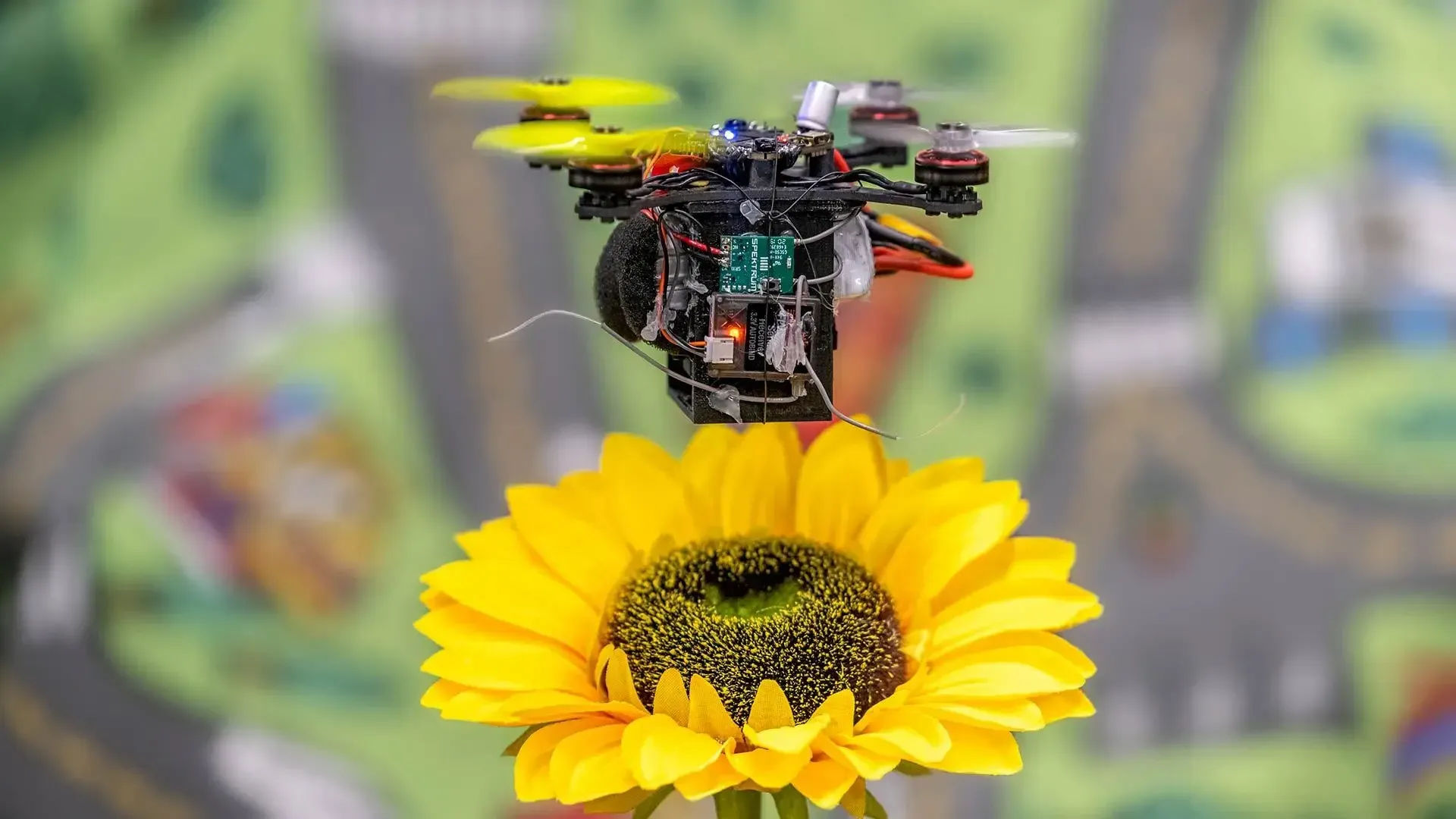
200+
faculty members who study and teach AI
TOP 3
in number of AI publications in the last 5 years
1000+
publications at top AI conferences in the last five years
New Breakthroughs in AI
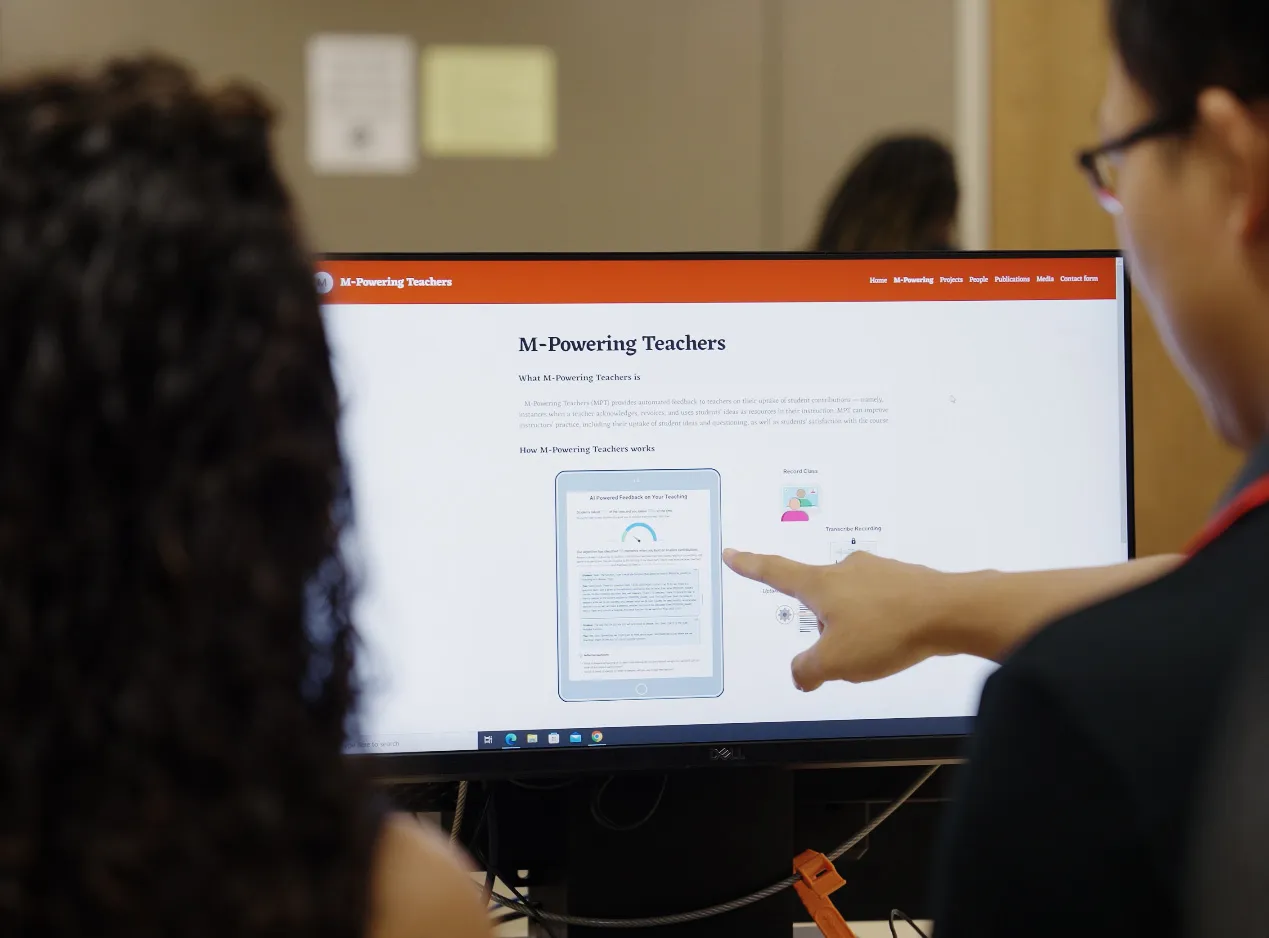
Applying AI for the Public Good
Our AI enterprise empowers communities and creates opportunities by equipping business leaders, policymakers and everyday citizens with all the life-enhancing possibilities of AI grounded in ethics, responsibility and trustworthiness.
World-Class Faculty
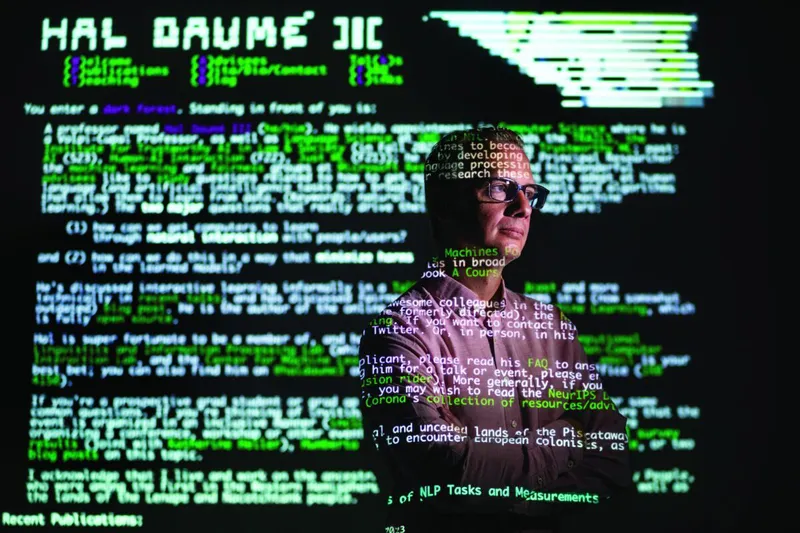
Computer and Language Science
AI for human self-efficacy, mitigating social harms
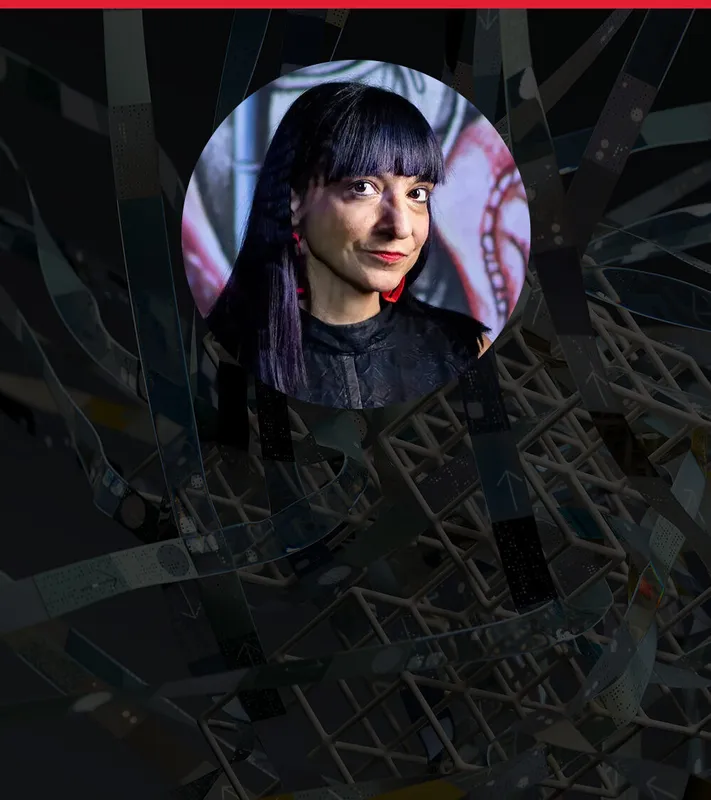
Humanities
AI and the future of work and human rights
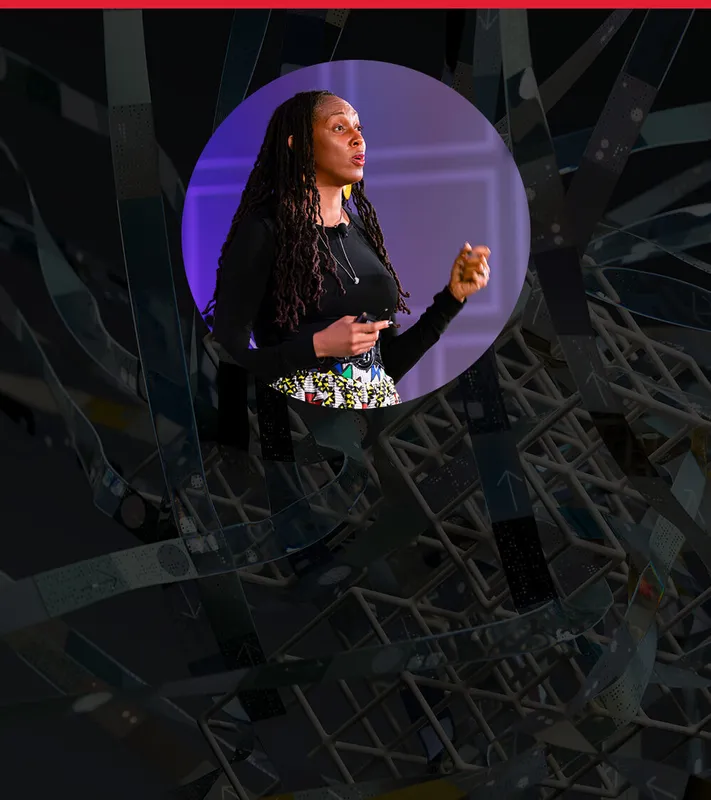
Information Science
Community-based design, equity in AI and machine learning tools
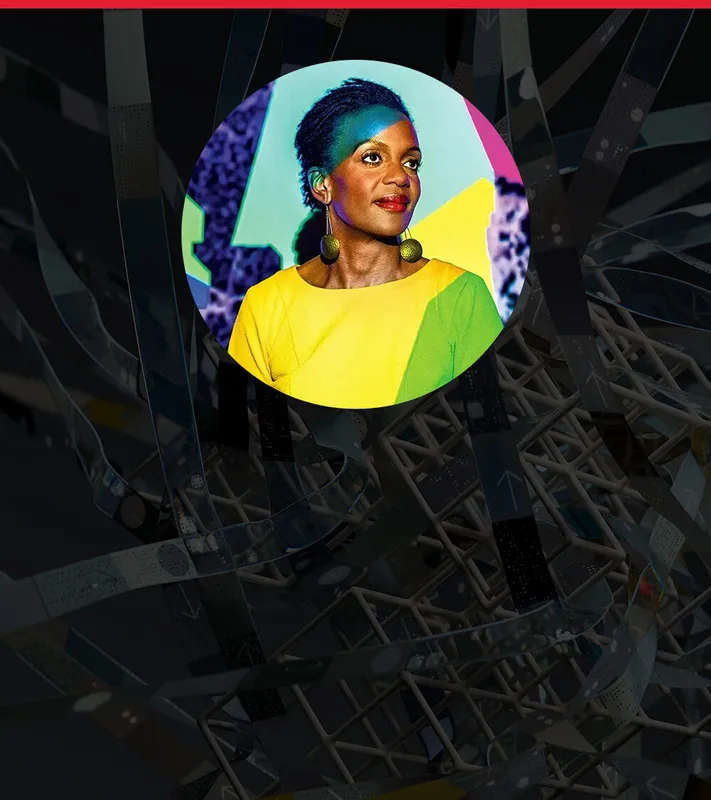
Geographical Science
Machine learning and remote sensing for agriculture and food security
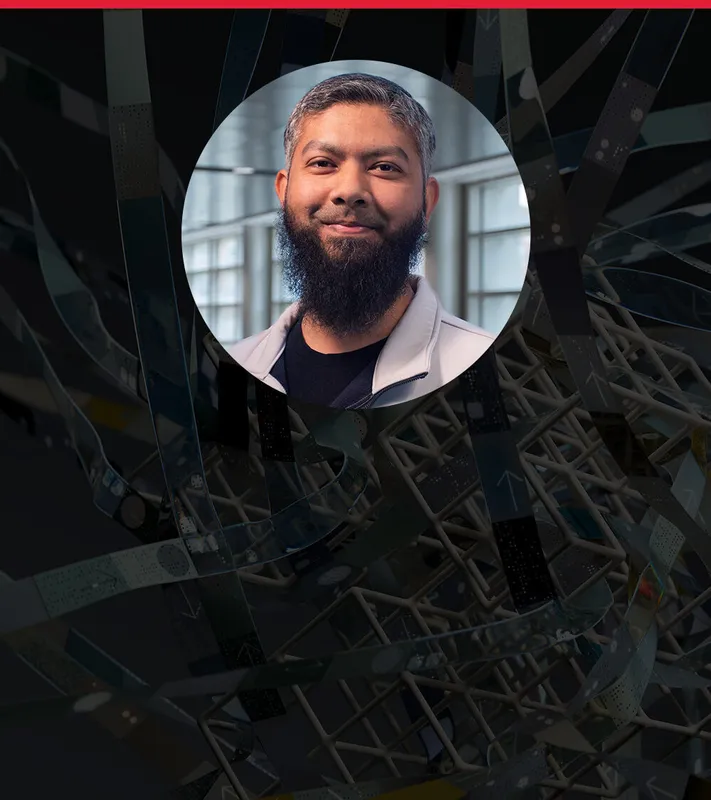
Journalism
Automated fact-checking, misinformation detection, credible health information

Public Policy
International security, cybersecurity, security policy, intelligence
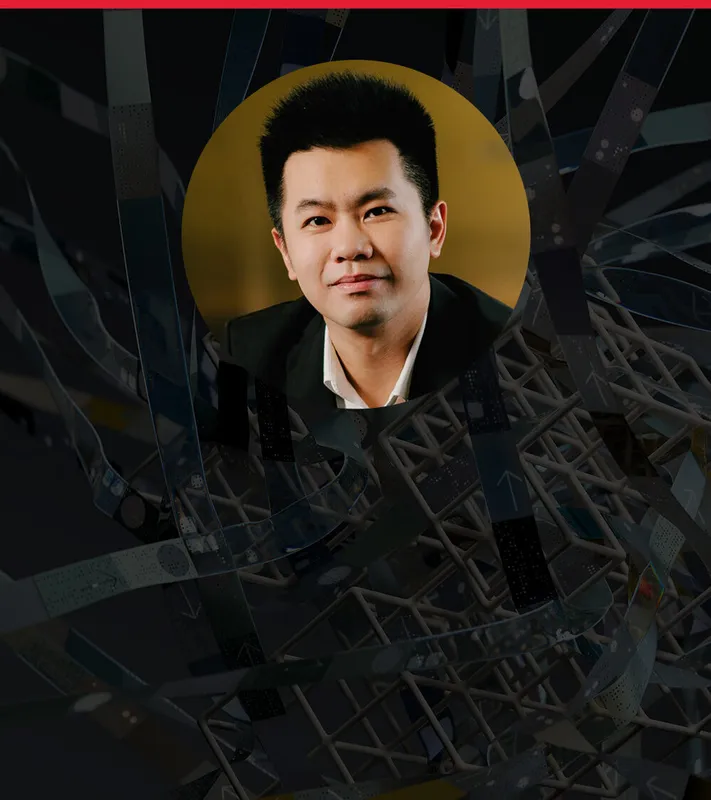
Chemical Engineering
AI-aided discovery of functional materials including sustainable plastic substitutes
Advancing Technology, Upholding a Legacy
For more than 60 years, the University of Maryland has been at the forefront of artificial intelligence research. From its earliest days in automation to today’s cutting-edge projects, UMD has advanced technology with society in mind, always keeping people at the center of innovation.
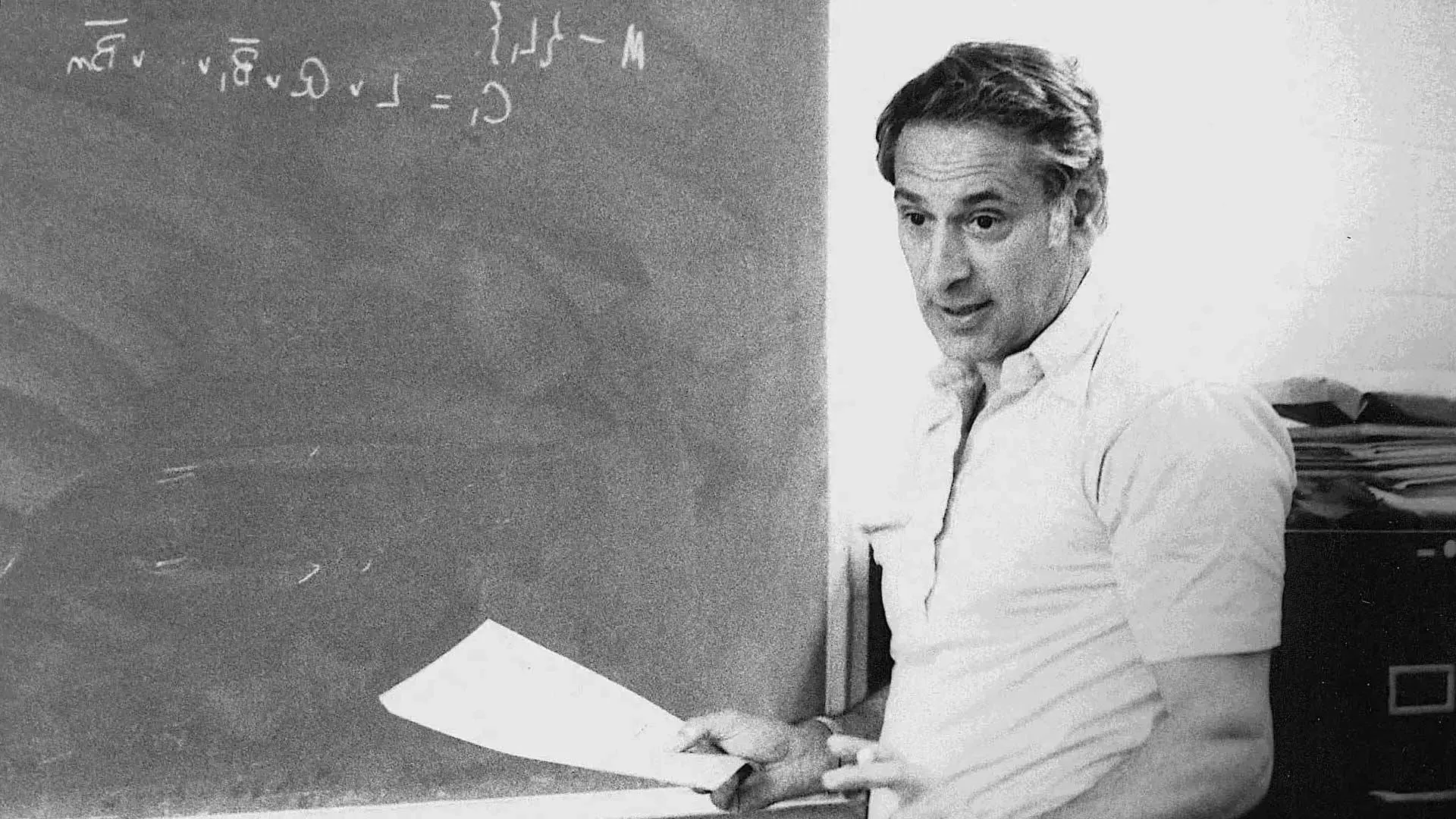
Jack Minker: Founding Computer Science Chair, Pioneer in AI Research and Human Rights Activist
“He was a jack-of-few-trades, the ones that mattered the most: doing the right thing, genuine caring about his students and colleagues, treating everyone with exceptional respect, passion about computer science and AI, human rights and leadership. He distinguished himself in each one of them,” said a former student, Simon Kasif M.S. ’83, Ph.D. ’84, now a professor of biomedical engineering at Boston University.
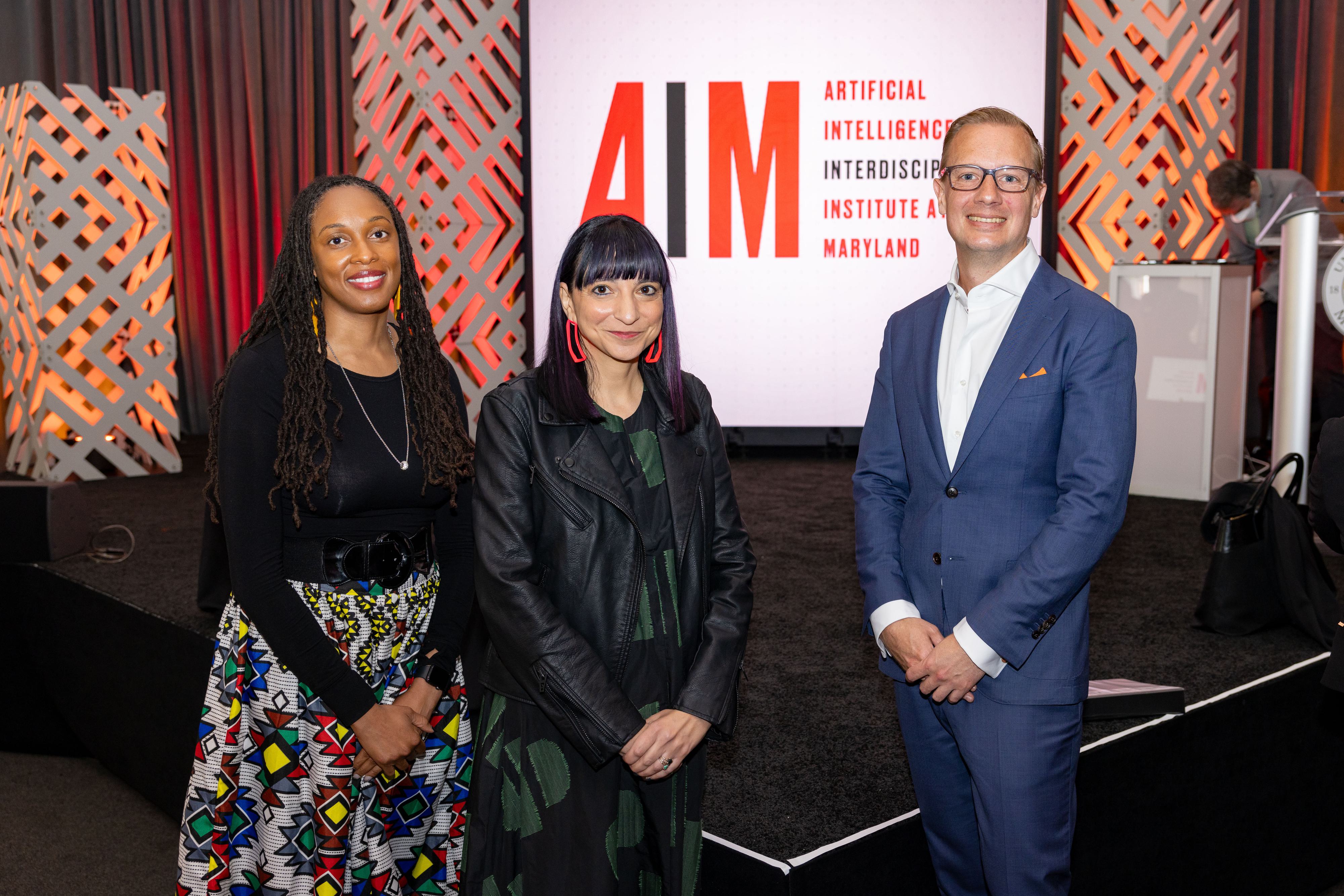
AIM Directors: Leading Maryland’s Next Chapter in Ethical AI
At AIM’s 2024 launch, directors (left to right) Sheena Erete, Neda Atanasoski & Hal Daumé III set a clear charge: build AI with integrity, respect and responsibility so it strengthens communities and serves the public good.
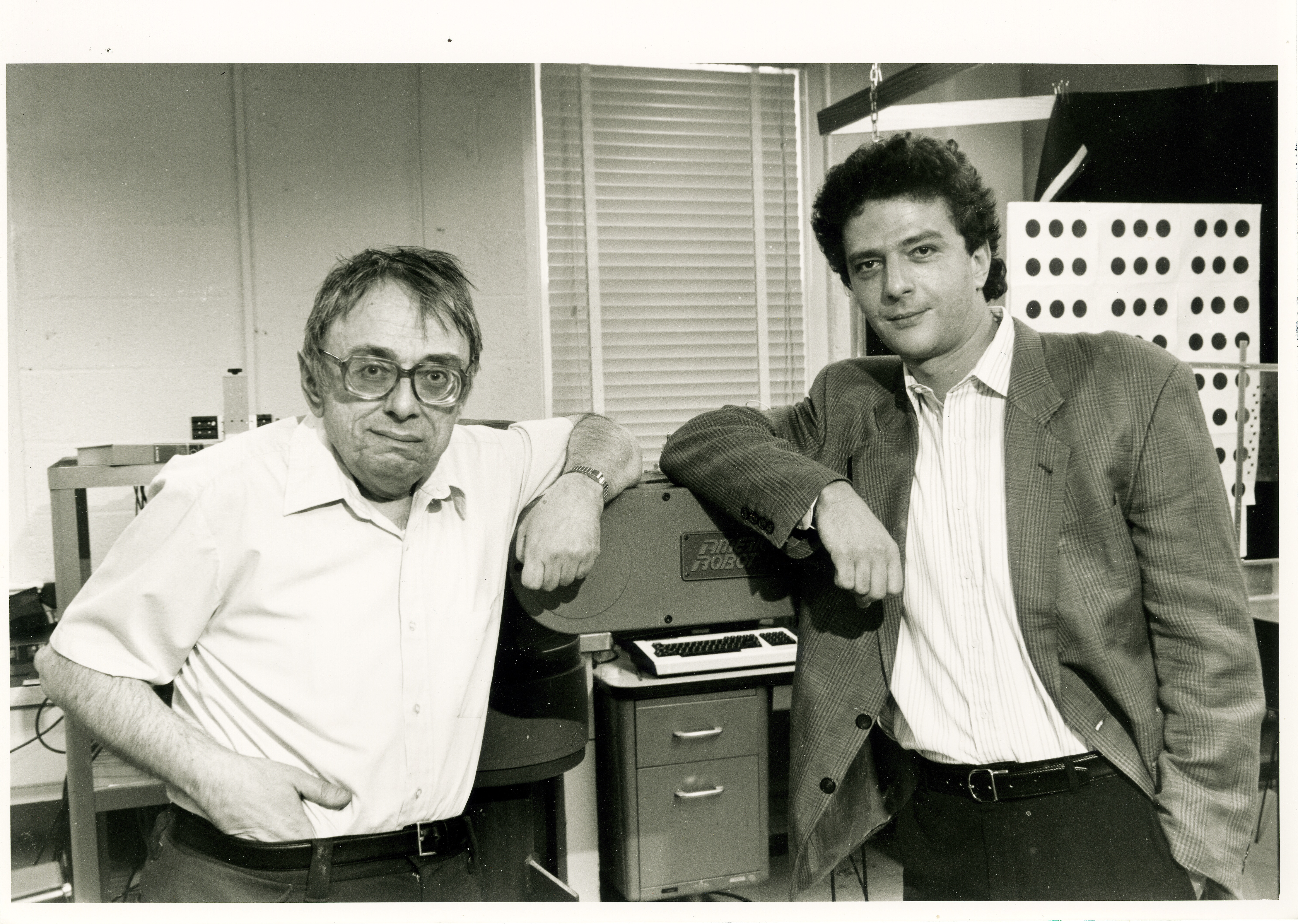
Pioneering Vision: Azriel Rosenfeld and the Early Days of AI
In 1964, Azriel Rosenfeld founded the Center for Automation Research, one of the earliest AI-related centers on campus. He and colleague Yiannis Aloimonos laid the groundwork for generations of innovation in computer vision and robotics.
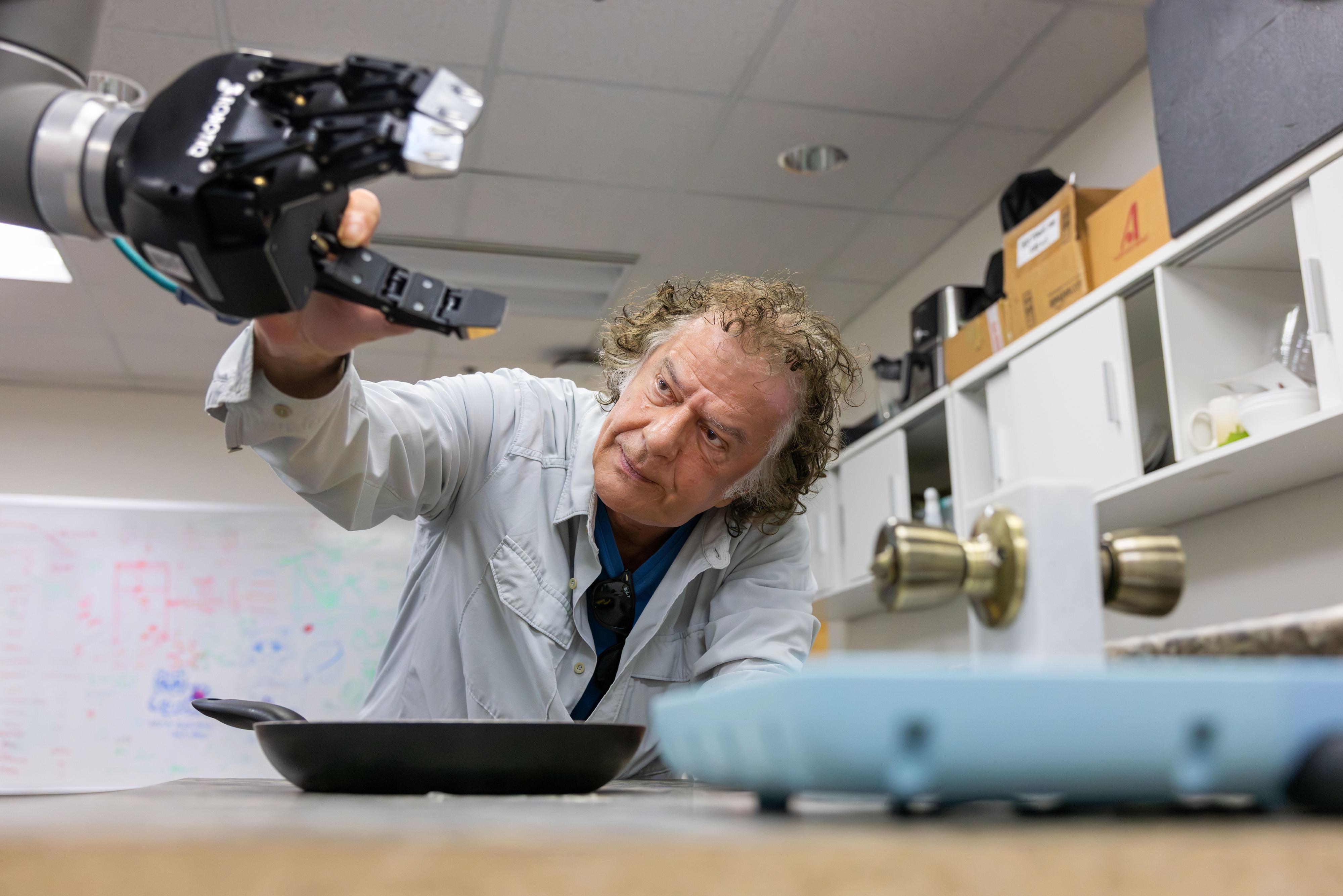
Continuing the Vision: Yiannis Aloimonos Advancing AI Today
Decades later, Yiannis Aloimonos continues that legacy, pioneering breakthroughs in robotics and computer vision and advancing research that brings the promise of AI into real-world practice.
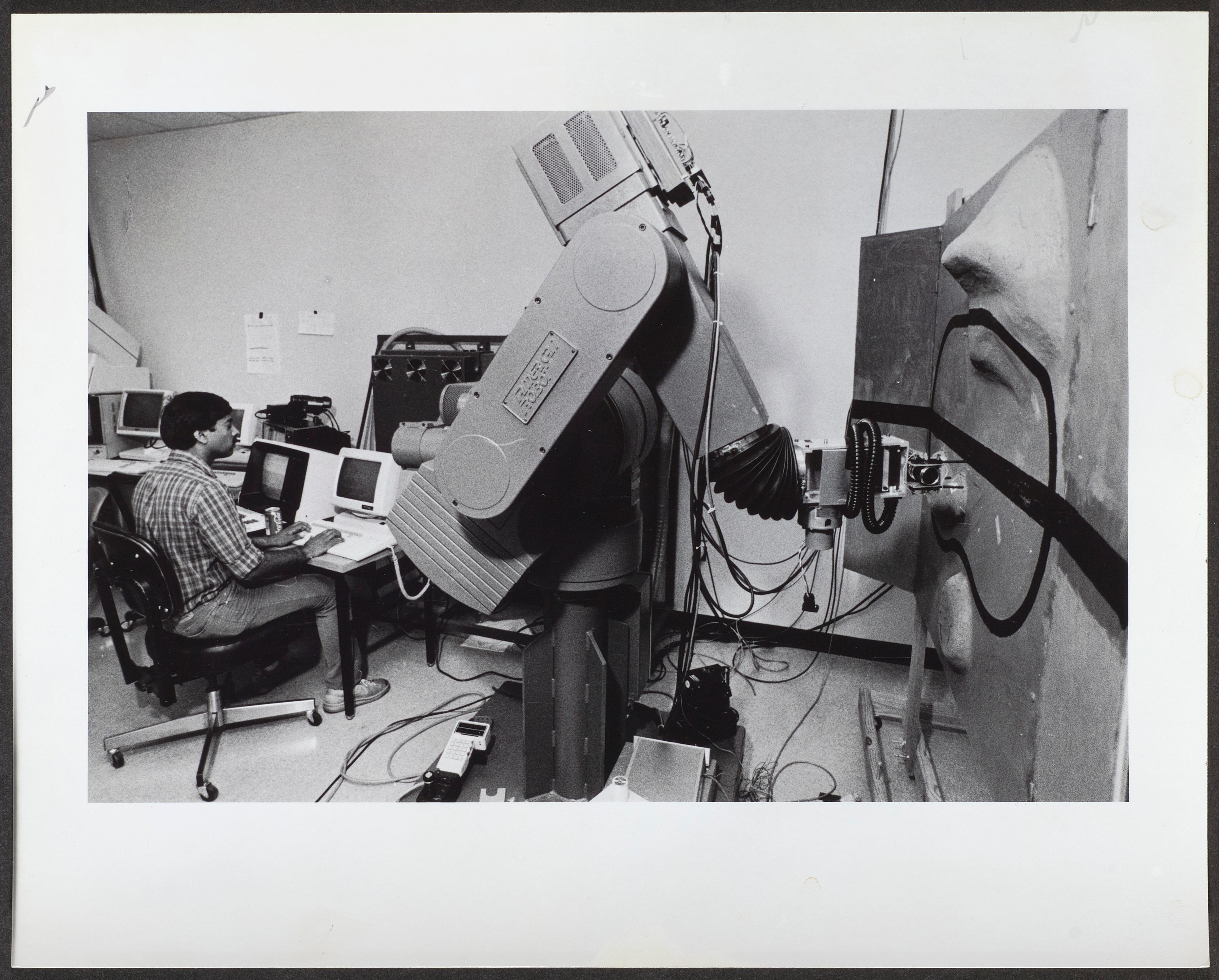
Hands-On Innovation: Students Exploring Robotics
A student engages with a robotic arm, experimenting with programming, control and motion. This hands-on work builds curiosity, precision and problem-solving—foundations of UMD’s enduring research legacy.
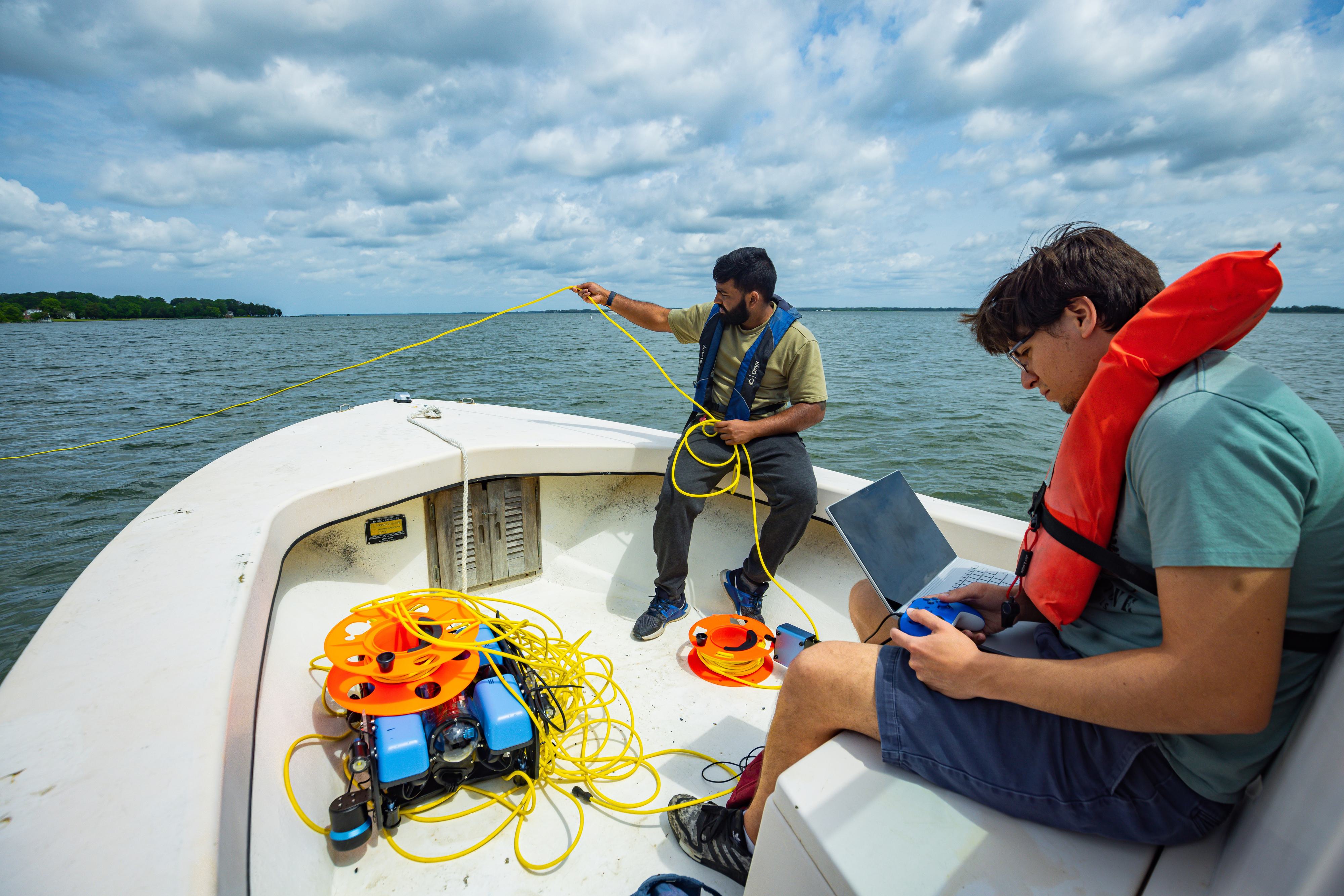
Applying Innovation to Take on Grand Challenges
Students operate underwater sensing drones to support precision aquaculture. Their work exemplifies UMD’s mission to harness technology responsibly and prepare students for impactful academic and professional careers.
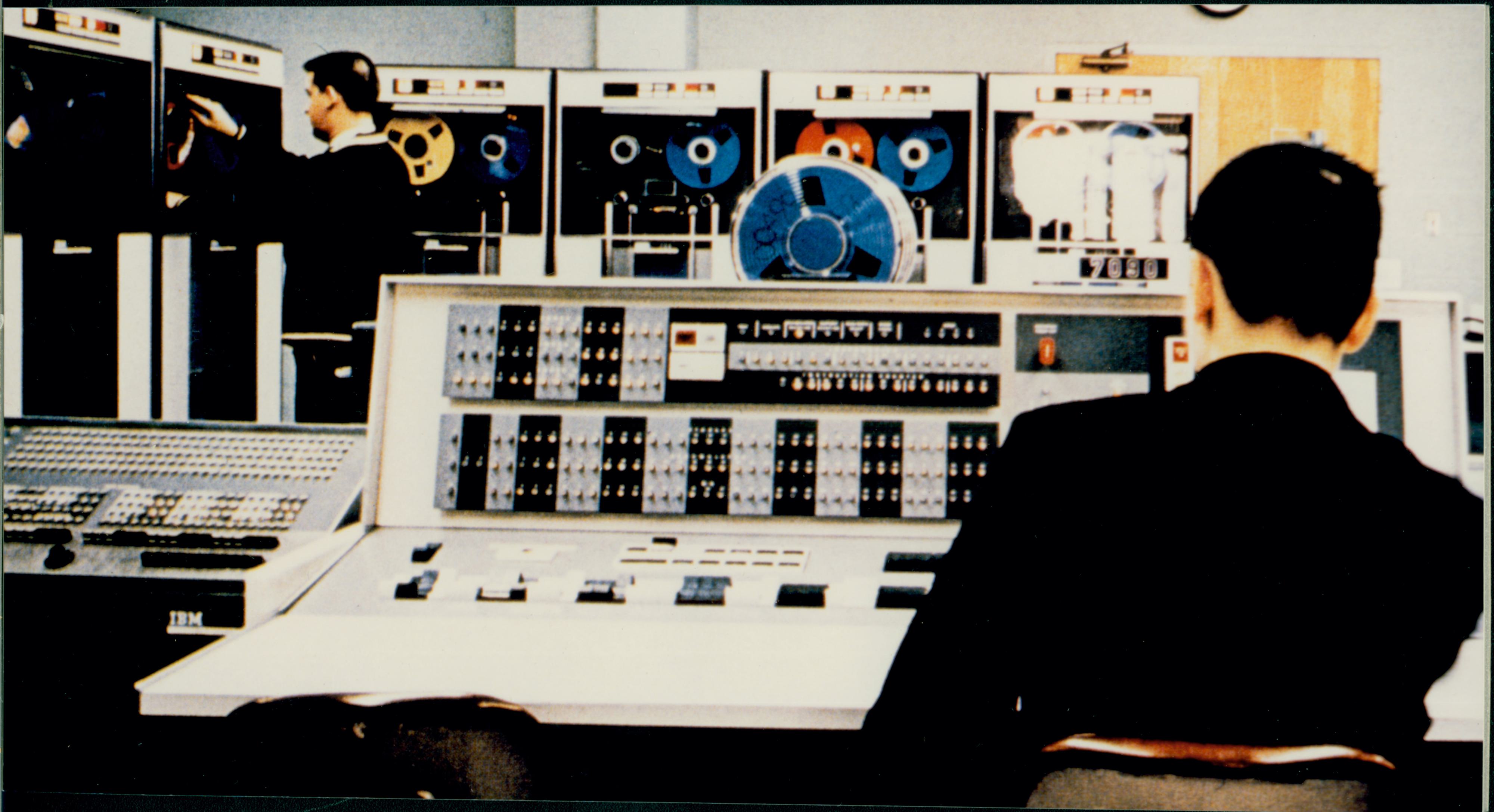
Foundations of Computing: Students at the CSC, 1964
In 1964, students at UMD’s Computer Science Center worked with early IBM mainframes, programming in languages like Fortran and exploring numerical simulations, batch processing, and data storage on magnetic tape. These hands-on experiences reflect the pioneering spirit of the era, influencing decades of teaching and research in computing at UMD.
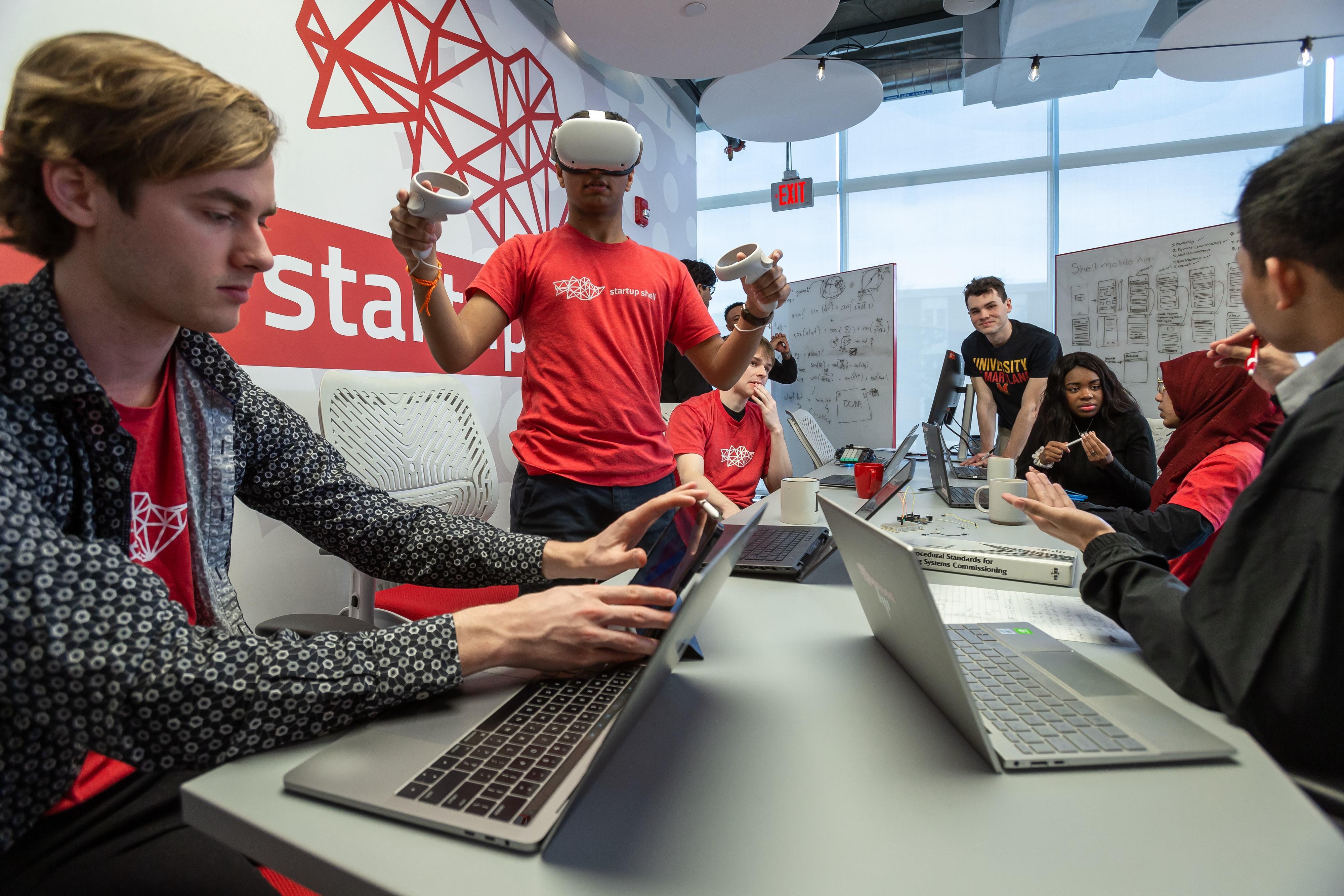
Exploring Frontiers Today
Today, UMD students use traditional computing, machine learning, immersive technologies and interdisciplinary applications to tackle complex challenges. Their work drives innovation, supports entrepreneurship and reflects the university’s mission to apply technology for social impact.
Leading the Dialogue
University of Maryland experts are trusted voices for leading outlets worldwide, shaping how journalists and audiences alike think about AI.

Jen Golbeck
Darth Vader never said, “Luke I am your father.” So why do we all think he did? Here’s the science behind this strange phenomenon—and how AI is poised to send it into overdrive.
The Mandela effect tricks our brains with false memories. Is AI making it worse?

Jen Golbeck
AI is making it easier for people to spread lies online, but a few simple steps can help to make things clearer
Deepfakes and misinformation — how to tell the facts from the fiction

Catherine Nakalembe
AI-powered tools are using real-time information to make recommendations to farmers that help them grow crops in shifting climate conditions.
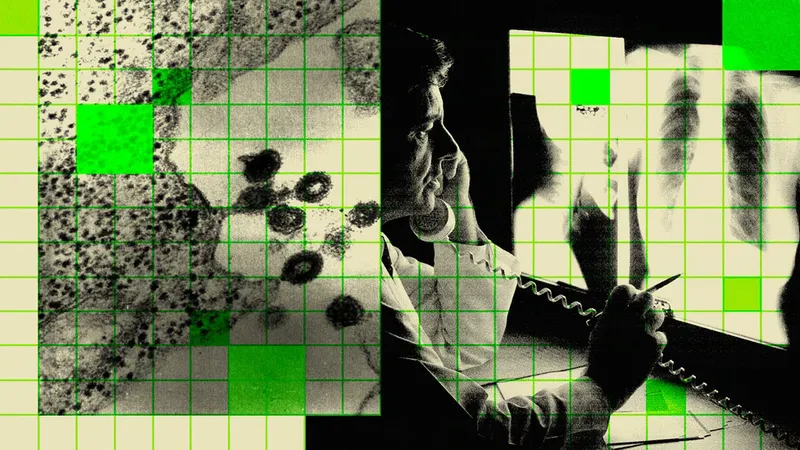
Praytush Tiwary
The technology is genuinely useful for scientific discovery, but its applications are less dramatic than you might think.

18
AI-related research communities
1000+
publications at top AI conferences in the last five years
Research Communities
Data science and artificial intelligence (AI) are emerging fields comprising interdisciplinary activities used to create data-centric applications and programs that address specific scientific, socio-political, or business questions. Data science and AI are making a significant impact in a number of sectors, including industry, government, health, and media.
Partner with us
Interested in partnering with UMD faculty to uncover new breakthroughs, enrich our student experience or make an impact on our world? Reach out to AIM to get started.